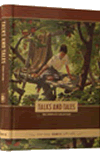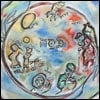The great Maimonides left a great and worthy successor in the person of his son, Rabbi Abraham ben Moses Maimon, also known as Rabbi Abraham Maimuni.
Abraham was born in Fostat, Egypt, in the month of Sivan, in the year 4945 from creation (1185 CE). His father, Maimonides, was 51 years old then.
Needless to say, the young Abraham was a source of great pleasure to his father. The boy was modest, highly refined and unusually good natured. Added to this he had a brilliant intelect. In short, he was a worthy son of a great father.
Abraham soon became known as a great scholar. When his father died at the age of 69, Rabbi Abraham Maimuni, despite his youthful age, was by far the greatest scholar in his community. Thus, at the age of eighteen, Rabbi Abraham succeeded his father in the once of Nagid (head of the Egyptian Jews). At the same time he succeeded his father also in the office of court physician.
Rabbi Abraham Maimuni greatly honored the memory of his father, and defended his writings and works against all critics. One of his greatest works is his Sefer Milchamoth Hashem ("The Book of the Wars for G‑d"), in which he answers the critics of his father's philosophical doctrines expressed in the Moreh Nebuchim ("Guide for the Perplexed").
Rabbi Abraham Maimuni's other works included a Commentary on the Torah in Arabic, of which only his commentaries on the first two books of Moses are now extant.
He also wrote a great work on Halachah (Jewish laws), combined with philosophy and ethics. This, too, he wrote in Arabic. He arranged this book after the order of his father's Yad.
Rabbi Abraham Maimuni also wrote various medical works.
Thanks to his influence, a large Karaite community (a sect of Jews who had drifted away from the orthodox and traditional teachings of Judaism; there were several such communities in the Near East at that time, but practically extinct now) in Egypt returned to the fold of true Judaism.
Rabbi Abraham Maimuni died on the 18th of Kislev in the year 5015 (1255).







Start a Discussion